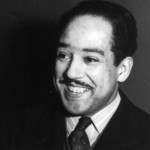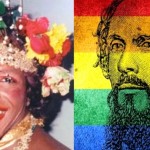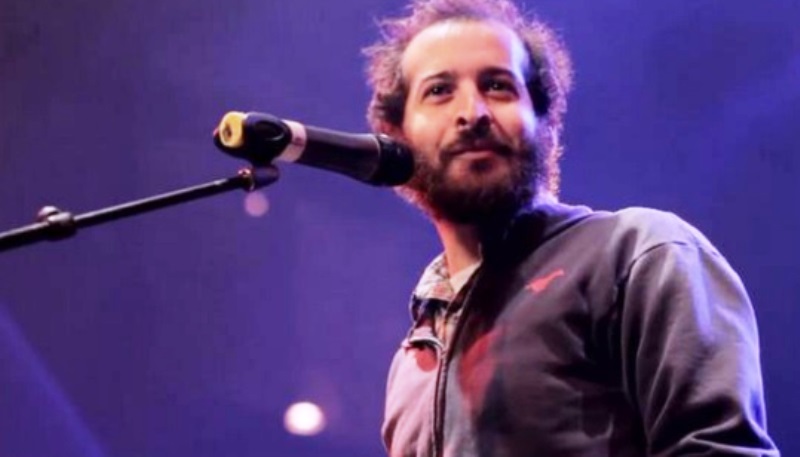Langston Hughes is most reverentially remembered as a leader of the Harlem Renaissance in New York city during the 1920s and as one of the earliest innovators of jazz poetry- a style of poetry that incorporates several elements from African American musical traditions, like the blues, gospels, etc. Jazz poetry emerged from the margins of the mainstream American culture and arts, a kind of alternative, subversive artistic expression that continued to gain popularity through the 1950s under the creativity of the Beat Generation, and later paved the way for development of modern day hip-hop, spoken word poetry, etc.
During the 1900s, Harlem became a haven for African American culture, as more and more Blacks from the South began migrating northward with the hopes of a better life. There was also an influx of Caribbeans who were landing in the US in search of employment and a better life. It was at this time that Harlem began growing as the seat of art and culture for an otherwise marginalized group. Langston Hughes exploded into the scene with his poem “The Negro Speaks Of Rivers”, published in The Crisis magazine. This was his signature poem and was a part of his first collection of poetry- The Weary Blues (1926). Hughes’s poetry and cultural nationalism was an inspiration to African Americans and Africans across the world. Foreign writers like Jacques Roumain, Léopold Sédar Sénghor, Aimé Cesaire, Léon Damas, René Maran, and others were influenced by Hughes’s ideas of racial consciousness, and his pride in the diversity of African culture and tradition.
Hughes’s poetry focuses on the lives of the ordinary Black men and women. He talks a great deal about the working class African American citizens, most of whom shifted to the Northern and Midwestern states of the USA to escape the segregation prevalent in the Deep South; yet, their condition wasn’t all that better because they were victims of rampant racism in the urban, liberal spaces as well. Hughes differs from his contemporaries in the sense that he wrote his poetry specifically for a Black audience, and about issues that they faced on a daily basis. He was not interested to use his poetry to gain the acknowledgement and patronage of a liberal White readership, and neither was he interested in enlightening them about his people.
Rather, Hughes believed that the purpose of a Black artist was to spiritually inspire his own people, to reflect their values and cultures, to embrace one’s true self, and to reject whiteness in all its forms. Hughes was also extremely critical of artists and individuals who attempted to copy white standards in order to become more like their oppressor- the white man. He said that the problem with several Black artists is that they were afraid of being themselves and desired to “pour racial individuality into the mold of American standardisation, and to be as little Negro and as much American as possible.”
His short essay written for The Nation magazine, titled The Negro Artist and The Racial Mountain (1926) was a call to all Black artists to stop this blind copying of the white man’s artistic traditions and to create one’s own; this essay went on to become the manifesto of the Harlem Renaissance. It was a declaration that “Black is beautiful”. Here, Hughes writes- “… it is the duty of the younger Negro artist, if he accepts any duties at all from outsiders, to change through the force of his art that old whispering ‘I want to be white,’ hidden in the aspirations of his people, to ‘Why should I want to be white? I am a Negro – and beautiful’”
Suggested read: “Let Us Catch The Next Tornado Home” And Other Poems By Mike McGee
From the 1920s to the 1960s, Hughes had a very busy career, wherein he wrote several collections of poetry,novels, short stories and plays. Hughes began writing poetry since he was in high school and continued to do so till he died. His poetry is known for its colorful portrayal of African American life, reflecting the culture, language, suffering, love for music, joys and sorrows, their everyday battles and resistance. Below are some of the best lines from langston hughes poetry that is sure to leave you with a better understanding of African American life during years of racial segregation and the Jim Crow era:
- Dream Deferred
What happens to a dream deferred?
Does it dry up
Like a raisin in the sun?
Or fester like a sore–
And then run?
Does it stink like rotten meat?
Or crust and sugar over–
like a syrupy sweet?
Maybe it just sags
like a heavy load.
Or does it explode?
Hughes has always been critical of the American Dream and its failure to include minorities, people of color, immigrants, and others within its ambit. The America that the African American inhabits is starkly different from the white man’s United States Of America. Hughes warns that by preventing the Blacks from realizing their full potential and fulfilling their dreams, the American society is veering towards a possible revolution that will turn the status quo on its head. Dream Deferred (Harlem) is a short but powerful poem that forces you to think about the injustices meted out to African Americans and their rising anger, discontent, and resistance towards the same.
2. Harlem Sweeties
Brown sugar lassie,
Caramel treat,
Honey-gold baby
Sweet enough to eat.
Peach-skinned girlie,
Coffee and cream,
Chocolate darling
Out of a dream.
Walnut tinted
Or cocoa brown,
Pomegranate-lipped
Pride of the town.
Rich cream-colored
To plum-tinted black,
Feminine sweetness
In Harlem’s no lack.
This excerpt from Hughes’s poem Harlem Sweeties is a playful depiction of Harlem as a melting pot of cultural fecundity, music, sex, art, dreams, pleasure and endless possibilities. He also attempts to change the definitions of beauty in the American society that is heavily based on the precondition of whiteness. Although he appears to be casting a male gaze on the women of Harlem, Hughes’s intention is to challenge this whitewashed norm of beauty by extolling the “rainbow-sweet thrill” of beauty that can be found in the browns and creams and coffees and caramels. It is a sensuous, luscious celebration of African American beauty and rejection of the standards set by the white society.
Suggested read: Activist Poet Rudy Francisco And His Poems
3. The Negro Speaks Of Rivers
I’ve known rivers
I’ve known rivers ancient as the world and older than the flow of human blood in human veins.
My soul has grown deep like the rivers.
One of the earliest works of Langston Hughes poetry, The Negro Speaks Of Rivers is a testament to the long tradition of African culture and its undying spirit. White supremacists and colonialism have always looked down upon African culture as lesser than European culture; have systematically erased their history and language; looked down upon their traditions, art and values; and denied them equal footing and opportunities in all spheres. Through this poem, Hughes tries to reclaim the history of Africa and her people, the “I” in the poem is the collective voice of Africans, African Americans, and the African diaspora, proclaiming their rich cultural heritage and history; they have witnessed the dawn of human civilizations and have seen it march through centuries. This poem is a testament to the fact that African history and culture has been around longer than the white man’s oppressive rule; its ancient wisdom and history is unparalleled, and expansive.
4. Theme For English B
You are white—
yet a part of me, as I am a part of you.
That’s American.
Sometimes perhaps you don’t want to be a part of me.
Nor do I often want to be a part of you.
But we are, that’s true!
As I learn from you,
I guess you learn from me—
although you’re older—and white—
and somewhat more free.
The young student, the protagonist of Theme For English B, speaks of his experience as the only colored student in his class- a common thing in the Jim Crow era when it was nearly impossible for African Americans to find admission in White educational institutions. The student feels like an anomaly in his class, he’s 22 and yet to find out what his true self is like, but he recognizes himself in the streets of Harlem, and in fact, all of New York. This poem is a commentary on what the American society should ideally be like- a space where people of all races, religions, ethnic backgrounds can live freely, and in harmony. Hughes signals the need for a synthesis of Black and White cultures; he believes that both sides have something to offer to the other, and something to learn from. The student’s White teacher may be older and freer than him, yet they are both a part of each other’s lives. This is Hughes’s vision of the multiplicity of the American Dream and the American way of life.
5. The Weary Blues
Droning a drowsy syncopated tune,
Rocking back and forth to a mellow croon,
I heard a Negro play.
Down on Lenox Avenue the other night
By the pale dull pallor of an old gas light
He did a lazy sway. . . .
He did a lazy sway. . . .
To the tune o’ those Weary Blues.
With his ebony hands on each ivory key
He made that poor piano moan with melody.
O Blues!
This poem, titled The Weary Blues, is one of Hughes’s most well known Blues poems, and appears in the poetry collection of the same name published in 1926, shortly after Hughes moved to Harlem. The poem is written in free verse with an irregular rhyme scheme, and mimics the rhythm and speech patterns of Blues music. The poem is about a Blues singer, playing his piano on Lenox Avenue; he can be heard crooning throughout the night, expressing his weariness, disappointment and mournfulness- an image of the oppressed African American individual. The poem incorporates several elements of Blues, such as repetitions, inflections, and themes of melancholy and loss. The singer is able to reach a state of catharsis through his music by channeling his anger, pain and weariness into it.
Suggested read: #BookReview: ‘The Book Of Tea’ Is The Perfect Ode To The Cup Of Humanity
The poetry of Langston Hughes is simple, yet immensely powerful. His poetry continues to instill pride and resilience in African Americans, and presents an image of the American Dream that is inclusive of people of all colors, ethnicities, religions and genders.Reading langston hughes poetry is more than just a form of literary pleasure; it also a mode of learning to be better a human being.
Featured image source: Google, copyright-free image under Creative Commons License













